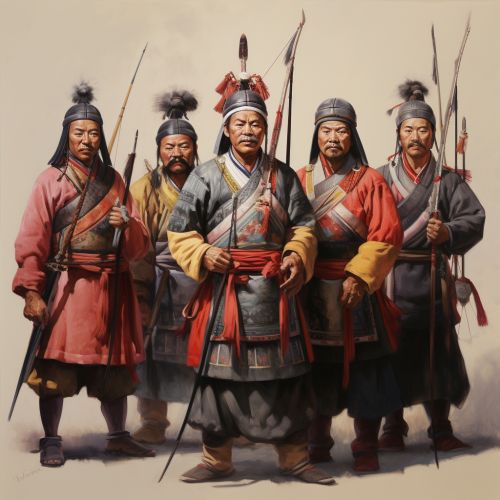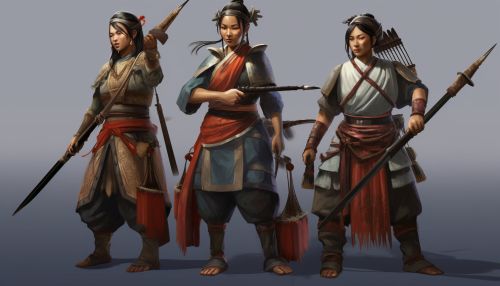Qing dynasty
Origins and Formation
The Qing dynasty, also known as the Manchu dynasty, was the last imperial dynasty of China, ruling from 1644 to 1912 with a brief, abortive restoration in 1917. It was preceded by the Ming dynasty and succeeded by the Republic of China. The Qing multi-cultural empire lasted for almost three centuries and formed the territorial base for modern China. It was the fifth largest empire in world history in terms of territorial size.
Rise to Dominance
The rise of the Manchus was a slow and arduous process. The Manchus, a federation of Jurchen tribes native to what is now Northeast China, were initially vassals of the Ming emperors. However, the Ming's weakening grip on power and their inability to control their vassals led to the rise of the Manchu leader Nurhaci, who united the Jurchen tribes and established the Later Jin dynasty.


Reign and Administration
The Qing dynasty was marked by a period of stability and growth, despite initial resistance and rebellion. The Manchu rulers adopted the Confucian norms of traditional Chinese government, while also implementing their own policies. The Eight Banners system, a unique Manchu socio-military institution, played a crucial role in the Qing's consolidation of power.
Culture and Society
The Qing dynasty was a period of great cultural and social change in China. The Manchu rulers encouraged the preservation of Manchu culture, while also promoting Chinese culture. The literary and visual arts flourished during this period, with notable advancements in painting, porcelain, and silk production.
Decline and Fall
The decline of the Qing dynasty was a result of both internal and external pressures. The internal factors included corruption, peasant unrest, and rebellions. The external pressures included the Opium Wars with Britain, the unequal treaties with Western powers, and the encroachment of Western imperialism.
Legacy
The legacy of the Qing dynasty is complex and multifaceted. It marked the end of the imperial era in China, but it also laid the foundations for modern China. The Qing's policies and reforms, particularly in the areas of government, society, and culture, continue to influence China today.
